QUILIETTI our unique surname
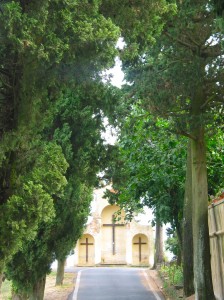 Our unique surname. Are the rest of my family like myself? Was there times when we wanted to know about our name, from where it came, from whom it came from.
Our unique surname. Are the rest of my family like myself? Was there times when we wanted to know about our name, from where it came, from whom it came from.
Being exasperated from the time I presented myself to Primary 1 and telling others how to pronounce QUILIETTI and the years that followed trying to mumble some unknown dribble when confronted about it’s origins. And being called Helen Spaghetti on more than one occasion all added up to the big question mark. Where did it come from. QUILIETTI it sounds French Italian. But from where did it originate. My own father did not talk about his heritage, although he did throw some hints to my deaf ears at a tender time before I was at all interested in such stuff. But the ignorance of my past has only strengthened my passion in finding our family roots.
Our parents did not sit down to discuss any such matters with you. Dad would perhaps comment that you should not pay for your chips from the Brattisani cafe’s because they were your cousins. Dad also told us about our Demarco cousins, but only that we were not to pay to go into the Entreupaneur’s Galleries.
Our name is similar to Guilietti from Italy
It is similar to Quilette from France
It is similar to Quelette from France
It is similar to Qualatte from Italy
It is similar to Quilett also from Italy.
But our name is unique. We know this because we know it’s history. We know from where it originated.
The SURNAME, also called FAMILY NAME, is nowadays added to an original or baptismal name, inherited and held in common by members of a family. The Italian word “cognome” comes from the Latin “cum nomine”, something that accompanies the name. In antiquity no surnames were used, then for the first time in ancient Rome the use of the tria nomina for the citizens was established. As an example, the three parts in “Marcus Tullius Cicero”, consisted of “Marcus” – the prenomen, or individual’s name; “Tullius”, the nomen identifying the gens or family, and the cognomen “Cicero” which was a kind of nickname to identify the individual still further.This custom was lost in the Middle Ages, and individuals were known just with their baptismal name, as Gionata, Giuseppe, Simeone, until about the year 1000, when starting from Venice already a second name was added, to avoid confusion. The custom gradually spread from the nobility to all classes of people, and by the 15th century most surnames were formed. Finally in 1564 the Council of Trento ordered parish priests to record each individual with name and surname.
Our forefather Leonardo Quilietti was born on the morning of the 27th of November in the year 1835. His mother’s name was Maddalena Praccia, and she was a widow. We do not know the exact circumstances of his birth. If Leonardo was concieved outside of marriage then this would have been a great sin in Italy at this time. The Church would have had a great influence over whatever circumstances would have contributed to the birth of our papa Leonardo. Maddelena had children who would have been teenagers 16 and 17 when Leonardo was born. Maddalena died shortly after Leonardo was born, the same day.
His birthplace was in the village of Vorno, which is just south of Lucca in Tuscany. The baby was then taken immediately to the Vorno Church, which lies in the Parrichio’ d’ Saint Pietro, via Communai di Vorno to be baptised into the Catholic Faith. This church still stands in the village today. It is humble from the outside but inside holds a beautiful ornate church.http://www.youtube.com/watch?v=G1PIYehcQ5o
The child was baptised into the catholic faith and from then taken to the Ospendale’ de Lucca, which was an orpahanage run by the Catholic Church.http://www.youtube.com/watch?v=Vsnv4rkC-LQ&feature=related
He was taken to the church by a gentleman by the name of Iacopo Olvieri who we think was the brother of Maddalena. The files of the orphanage are translated as follows.
- Leonardo Quilietti, 1838 on the 27th of the month of November at 9.00 in the morning, brought in by Iacopo Olivieri of Vorno, from the Village of Vorno just outside Lucca. He was baptised on the 27th of the month of November 1836 in Vorno’s Church as witnessed by Reverend Giocondo Pardini, Chaplain, and registered at the Hospital Bureau in the Public Book of the year 1837, papaer No. 181.
Usually children who grew up at the orphanage had really been abandoned, and not simply given into care, because in this case they would have had a proper given surname, the name of their parents or other relatives, dead or otherwise, that would have been recorded on the documents that the priest would have passed on to the Ospendale’ administration.
In Leonardo’s case there is no such record. He was simply passed into their hands. The authorities there baptised the boy and christined the baby Leonardo because in Italy it is traditional to call children after their Saints. Saint Leonardo da Porto’ Maurizio is celebrated on the 27th November. He was christened after his Saint of that day.
His surname, Quilietti, was made up of the first part QUILI – which is the first part of the very common Lucca surname QUILLICI and the suffix ETTI which again is a very common surname-ending also in this region such as Barsetti, Marchetti, Paoletti, Tognetti etc.
This surname was presented to the baby in compliance with a law which, although passed in 1817 was only enforced after 1849 in the ex duchy of Lucca. According to this law, all abondoned children always had to be given a surname, invented and ALWAYS DIFFERENT. Before this law was enforced abandoned children from the Lucca area had no particular surname. When it came to the time when they had to leave the orphanage they took the surname of Lucchesi [i.e. from Lucca] or Dalla’Ospendale [i.e. from the Hospital]. In the year 1849 however all children who were either in the orphanage or to enter the orphanage were to be given proper surnames. These surnames were assigned following a completely random crieterion, e.g. Leonardo Quilietti was followed by another boy was was named Saturino Quilliotti, this surname being another variation using the Quilli=element. This followed the variation rule used with given names given to children throughout Tuscany at that period.
So this was the birth of our very unique surname.
The priests at the orphanage had to provide the abandoned children with a birth certificate which would mention all circumstances in which they were found and any other relevant information. The children had to leave the hospice after their eighteenth birthday. All male children were given a sum equal to half of the value of the work they had carried out during their stay at the hospice on their leaving the institute. This was to provide them with money to purchase tools needed for their given trade. Amongst male children were shoemakers and tailors to name only a few.http://www.youtube.com/watch?v=tWdBBKlgvJM&feature=fvw
The place of his birth, Vorno, has a small cemetery, still there today and very well kept. This cemetery holds many tombs and lairs with people from Vorno with the surnames of Praccia, which was Leonardo’s mothers name, and of Olivieri, the surname of the mystery man who presented the child into the hands of the Church. We do not know to date whether Maddalena survived the birth of her child or whether she passed over. Maddelena had two daughters Annuziata born in the year 1821 and Maria who was born in the year 1823. We know nothing of their lives, the half sisters of our ancestor Leonardo.
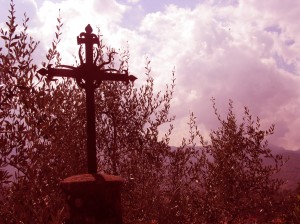
After his eighteenth birthday Leonardo left and we know nothing more of him until he married in the year 1866 in Barga, which is a few miles further north up the Serchio Valley. The unification of Italy would have just taken place.
IN GENERAL in ITALY
Origin of Surnames – When it was necessary to distinguish individuals with the same Christian name, most often the name of the father was added – Giovanni son of Berardo, which was shortened to Giovanni di Berardo or Giovanni Berardi. In the place of the father’s name, especially if the father was not known by the community since the individual had come from another place, the toponymic could be used, as in Giovanni Calabrese or di Genova, or the job, as Mastro Giovanni.
His descendants then would often maintain this addition to the Christian name, giving origin to the present surnames. There is a great variety of surnames in Italy also because of the many dialects, the variations such as Grasso/Grassi (singular and plural), and the presence of derivatives consisting of a final suffix, “smaller” as in surnames ending in -ello, -etto, -ino; “bigger” (-one) or “bad” (- accio, – azzo). The following are the main classes of surnames:
Patronymics – The widest category, present almost in all cultures, identified a person by his connection with another person, usually his father, more rarely his mother: the father’s name with “son” immediately after it in English, or “van”, “von” “di” “de” in other European languages, example: Di Giovanni, Johnson; most of these Italian surnames end in -o (masculine name) or in -i derived from a Latin masculine genitive (example: Bernardi means “of Bernardo”). The same origin appears in the preposition “de” or “di” as in De Luca, D’Angelo, Di Francesco. In case of a double name it is possible that the second identified the grandfather, as in Colaianni meaning son of Nicola (Cola), grandson of Giovanni (Ianni).
Toponymics – To identify where a person or family lived or came from, example Montagna, Milani, Wood, York.
- Local area: the surname was associated to a place well known to the community, as for example Fontana, Della Valle, La Porta, Montagna (from the fountain, the valley, the door, mountain)
- Geographical origin: this was applied as a consequence of the migrations of people; the place had to be known to the community that applied the toponimic, therefore if the individual came from near villages, the name of the village was used; if he came from a more remote city, region or country, a more general name was used, like Milani, di Genova, Napolitano, Pugliese, Albanese.
- Occupational names – The job, especially an artisan’s job in a small village, was possibly held by only one person or family, so that the profession was added to the Christian name, example Fabbri, Ferrari, Carpenter, Smith. The activity was often also shown with a typical object or animal connected to the profession, as Farina or Forni for a baker, Zappa for a farmer, Tenaglia or Martelli for a carpenter or smith.
- Nicknames – Some features of the personality or appearance, at times ironical, identified an individual and his descendants, example Piccoli, Short, Selvaggi, Savage. The nickname was often associated to the color or form of the hair (some of the most common surnames have this origin) as in Rossi, Morelli, Ricci, size, like Corti, Grossi, Testa; more creatively, the (often ironical) nickname was made with a verb and an object indicating an action typical of the individual as in Pappalardo (that who eats lard). Other surnames may have come from moral features, as Selvaggio or Allegretti. Names of animals could serve to the same purpose, so there were Mosca (someone small or annoying), Cavallo (someone big, noisy or with large front teeth), Gatto, Grillo, Lepore, Volpe. Finally a nickname may have come from some feature in the coatsofarm of the family, like De Argento, Mazzei, D’Arco.
- Surnames of Foundlings – This kind of surnames was chosen by religious institutions or, after the establishment of Civil Records, by the civil officer; they vary according to places and traditions, so that we have Esposito in Campania, Proietti in central Italy, Trovato in Sicily, Casadio in Emilia Romagna; in the late 19th century the custom was introduced to give to foundlings surnames of non-residents, or surnames invented on the spot.http://www.italyworldclub.com/genealogy/surnames/toscana/lucca/barga-1841.htm
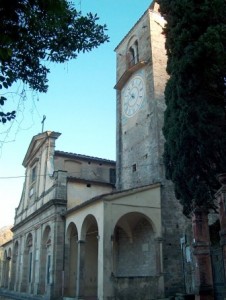
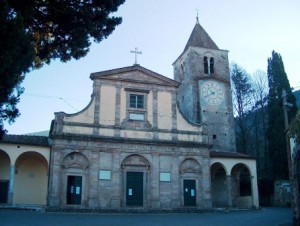
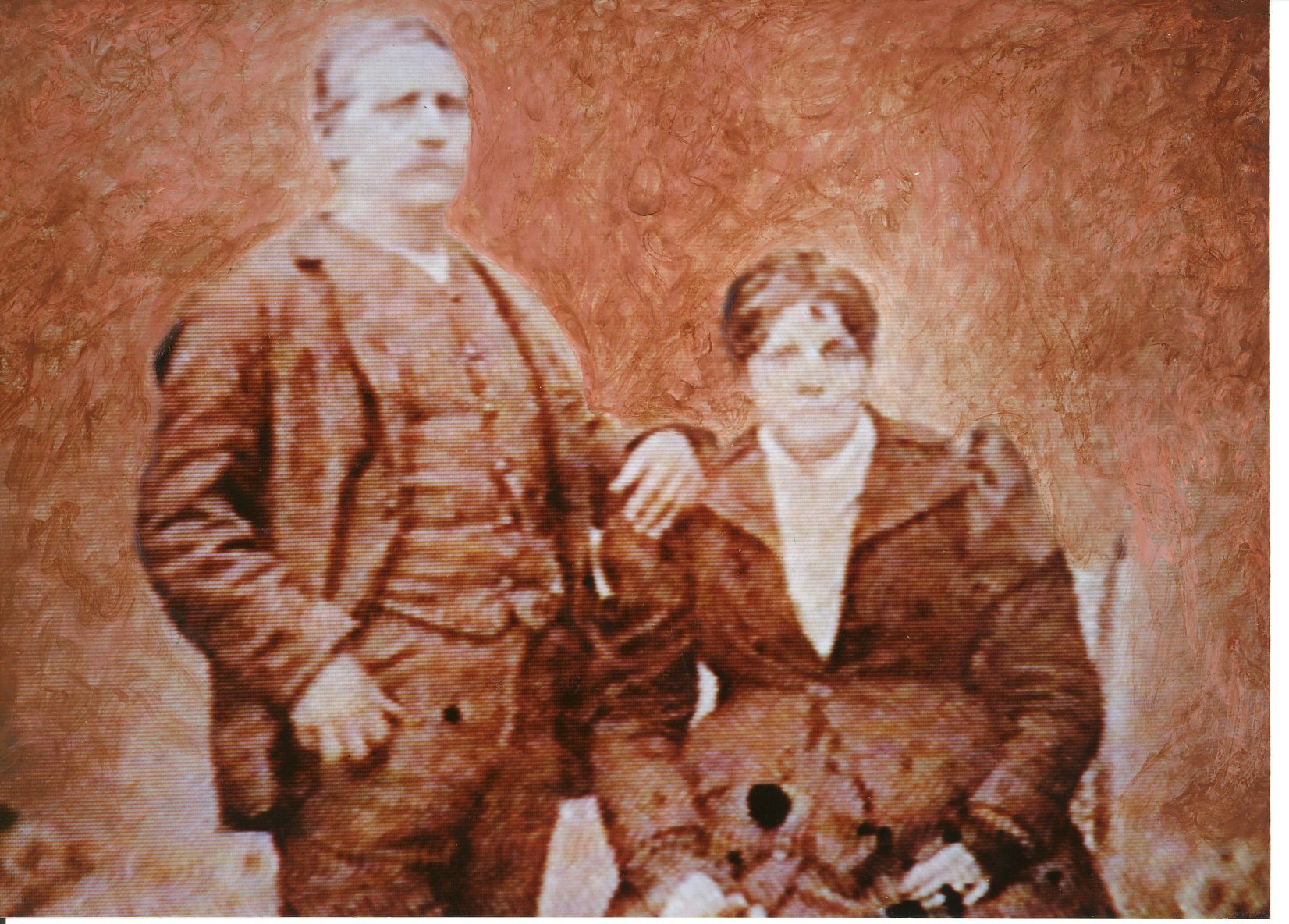
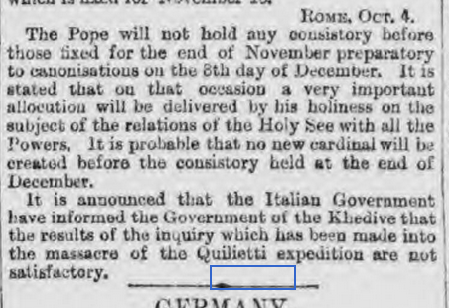
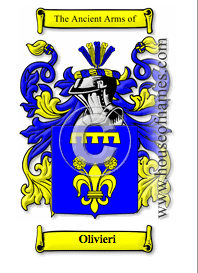
Leave a Reply